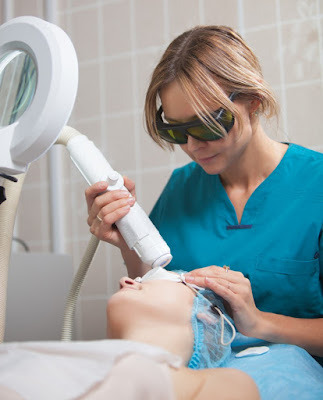The Best Way To Treat Aging Skin
As the skin ages, it begins to change in several ways. For one thing, the outer layer of skin begins to thin and underlying connective tissue loses elasticity, which leads to wrinkles and sagging. In addition, many people experience changes in pigmentation that result in dark spots, sometimes called "sun spots" (since they are caused by years of sun damage) or "age spots." Because most people do not welcome visible signs of aging, there is always a market for skin treatments that promise to rejuvenate the skin. The most recommended of these is retinoid cream, or retin A.
A retin a cream contains a derivative of vitamin A known as tretinoin. This substance is commonly used to treat acne as well as aging skin, and it works by speeding up the life cycle of skin cells. As skin cells grow and die more quickly, the skin cells are replenished with newer, healthier cells. In addition, the cream stimulates the skin to produce more collagen, the connective tissue that begins to thin with age.
Users of retin a have reported many anti-aging benefits. Many people notice that their loosening skin becomes more firm and plump, and that fine lines become less noticeable. In addition, users find that the aging process seems to slow down to a near stand still when they use the medication over an extended period of time. Others comment that their skin becomes smoother and more radiant, and their acne disappears.
A tretinoin cream should always be applied at night before bed because it is sensitive to light. Users should wash it off in the morning before applying any other skin care products. The product also makes the skin more sensitive to sunlight, so it is more important than ever to use sun protection when treating the skin with an anti-aging retinoid cream. Finally, users should plan on gradually increasing the dose from twice a week at .025% to nightly at .1%, at most. If the skin becomes irritated, the user should decrease the strength and/or frequency right away.
Though considered a safe product for most people, a retinoid cream can have side effects, especially if not used properly. These include redness, irritation, blistering, and extra sensitivity to sunlight, as mentioned above. By avoiding the sun and using proper sun protection (a hat and sun block) and by easing back on the dose, most users can eliminate or minimize the risk of unpleasant side effects. Finally, women who are pregnant should not use any kind of retinoid product as it increases the risk of birth defects.
Definition
A retin a cream contains a derivative of vitamin A known as tretinoin. This substance is commonly used to treat acne as well as aging skin, and it works by speeding up the life cycle of skin cells. As skin cells grow and die more quickly, the skin cells are replenished with newer, healthier cells. In addition, the cream stimulates the skin to produce more collagen, the connective tissue that begins to thin with age.
Benefits
Users of retin a have reported many anti-aging benefits. Many people notice that their loosening skin becomes more firm and plump, and that fine lines become less noticeable. In addition, users find that the aging process seems to slow down to a near stand still when they use the medication over an extended period of time. Others comment that their skin becomes smoother and more radiant, and their acne disappears.
Usage
A tretinoin cream should always be applied at night before bed because it is sensitive to light. Users should wash it off in the morning before applying any other skin care products. The product also makes the skin more sensitive to sunlight, so it is more important than ever to use sun protection when treating the skin with an anti-aging retinoid cream. Finally, users should plan on gradually increasing the dose from twice a week at .025% to nightly at .1%, at most. If the skin becomes irritated, the user should decrease the strength and/or frequency right away.
Side Effects
Though considered a safe product for most people, a retinoid cream can have side effects, especially if not used properly. These include redness, irritation, blistering, and extra sensitivity to sunlight, as mentioned above. By avoiding the sun and using proper sun protection (a hat and sun block) and by easing back on the dose, most users can eliminate or minimize the risk of unpleasant side effects. Finally, women who are pregnant should not use any kind of retinoid product as it increases the risk of birth defects.

judi sabung ayam BOLAVITA
ReplyDeletesabung ayam pilipin pakai pisau panjang
ReplyDelete